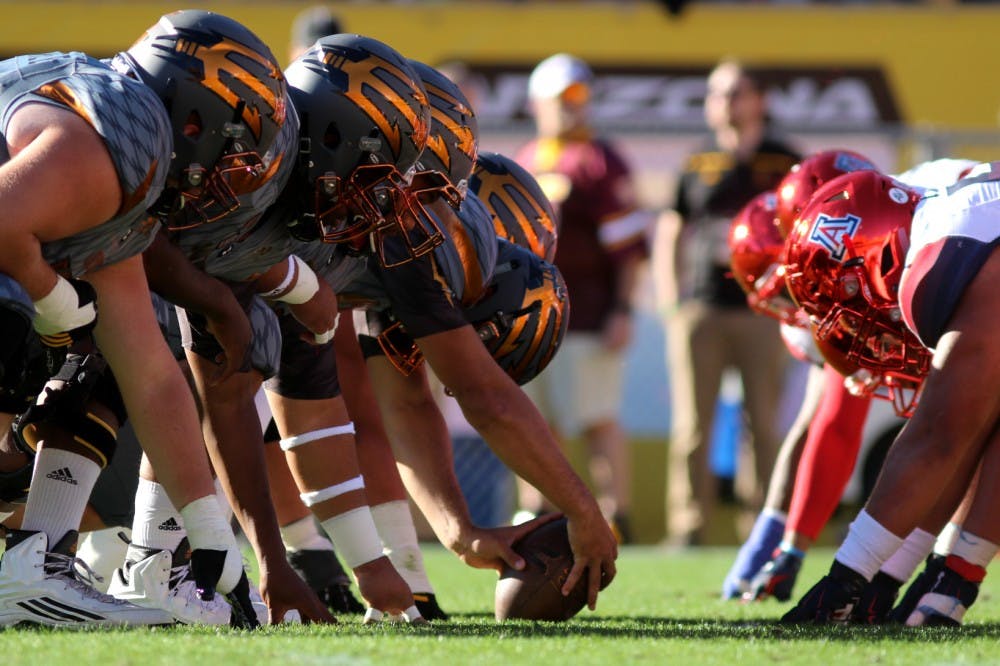The future of the NFL, and potentially all of organized tackle football, is in jeopardy, but you’d never know it.
Television ratings for the NFL are stronger than ever, despite the fact that the league has dealt with a myriad of image issues over the last several years. From domestic violence to poor officiating and "Deflategate," we will tune in no matter how corrupt the sport seems.
Among the height of these issues: concussions.
The Pittsburgh Steelers’ Wild Card Weekend victory over the Cincinnati Bengals featured some of the most thrilling moments in recent football, but will instead primarily live in infamy for Bengals' linebacker Vontaze Burfict’s apparent attempted decapitation of Steelers' wide receiver Antonio Brown.
But even the most casual of NFL fans know the dangers of hits to the head. After all, the NFL has adjusted the rules of the game itself, outlawing hits where a player leads with the crown of his helmet or any hit deemed deliberately targeting the head of another player.
Much of this change, if not all, stems from the findings of Dr. Bennet Omalu, a forensic pathologist. While performing the autopsy for former Steelers’ center Mike Webster, Omalu discovered chronic traumatic encephalopathy (CTE), a degenerative disease caused by repetitive head trauma. In recent years, the disease, which can only be identified and diagnosed postmortem, has been proven to be rampant in former football players.
Just this September, researchers with the Department of Veterans Affairs and Boston University identified the disease in a staggering 96 percent of NFL players and 79 percent of all football players that they have examined.
Despite the star power and devastating truth in "Concussion," it has failed to resonate. The movie has received mixed reviews, largely because it is too conventional, blunting the impact of the story’s veracity.
Obviously, the pervasiveness of this problem leads to serious questions about the ethics of football. All fans of the sport, including myself, need to remove their bias (the love of watching the game being played) and view the game objectively as it is played currently, which is morally unacceptable. Any type of entertainment that requires its participants to severely damage their own health in order to perform their role optimally should either be altered immediately to ensure its participants' safety or outlawed altogether.
Last April, there was a settlement between more than 5,000 ex-NFL players and the league over concussions. Last week, the New York Times published an article about the late Ken Stabler and his recently discovered brain trauma.
Despite this, though, fans keep coming back. They clearly are not deterred by the morbid medical realities of the sport. It seems evident that fans need to be reached in another more accessible fashion to truly incite change. What fans need is a mainstream portrayal of the concussion crisis in a light which they can be responsive toward.
Football is a key element in the fabric of American culture. It’s also fatally flawed and ethically deplorable. If we fans don’t recognize this, we’ll eventually lose the sport forever. "Concussion" should have intensified such a discussion, and perhaps many years from now it will be viewed as an important step in inciting such a discussion. But the early returns are more than disappointing, and only highlight how far away we are from meaningful change to a damaged product.
Related Links:
Partnering with Riddell in concussion study a great move for ASU football
Student invents mouthguard to detect concussions
Reach the reporter at bfryan@asu.edu or on Twitter @brennanryan27
Like State Press Sports on Facebook and follow @statepresssport on Twitter.





